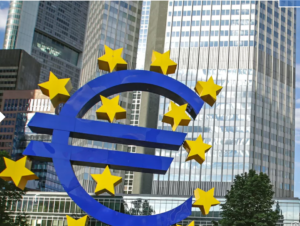 The European Central Bank (ECB) has released its card fraud report, revealing a continued decline in card fraud cases throughout 2021. The report, which draws data from 20 card payment scheme operators, indicates that card fraud has reached its lowest level since data collection began. In terms of the total value of card payments made within the Single Euro Payments Area (SEPA), card fraud constituted only 0.028%, amounting to €1.53 billion out of a total value of €5.40 trillion. This represents a significant decrease compared to the previous year, as card fraud in 2019 accounted for €1.87 billion from a total value of €5.16 trillion. The highest level of card fraud observed thus far was recorded in 2008 at 0.048% of the total value.
The European Central Bank (ECB) has released its card fraud report, revealing a continued decline in card fraud cases throughout 2021. The report, which draws data from 20 card payment scheme operators, indicates that card fraud has reached its lowest level since data collection began. In terms of the total value of card payments made within the Single Euro Payments Area (SEPA), card fraud constituted only 0.028%, amounting to €1.53 billion out of a total value of €5.40 trillion. This represents a significant decrease compared to the previous year, as card fraud in 2019 accounted for €1.87 billion from a total value of €5.16 trillion. The highest level of card fraud observed thus far was recorded in 2008 at 0.048% of the total value.
The report distinguishes between two main types of card fraud. The first type is card-not-present fraud, which involves fraudulent transactions conducted remotely, such as online and telephone payments, using stolen card details obtained through techniques like phishing. This category accounted for approximately 84% of the total value of card fraud in 2021, marking a 12% decrease from the previous year. The implementation of strong customer authentication under the revised EU Payment Services Directive (PSD2) across the market contributed to this decline. The second type is card-present fraud, typically occurring at retail outlets and ATMs and involving the use of counterfeit cards. Card-present fraud decreased by 6% in 2021 compared to the previous year, thanks to the global adoption of industry standards that have effectively reduced opportunities for magnetic stripe counterfeit fraud.
Consistent with previous reports, the majority of card fraud cases in both 2020 and 2021 were related to cross-border transactions. Although cross-border transactions represented only 11% of the total value of card payment transactions, they accounted for 63% of the total value of card fraud in 2021.
The Eurosystem is closely monitoring trends in card fraud in its capacity as overseer of card payment schemes operating in the euro area. Statistical information on the volumes and values of card transactions and corresponding fraud is collected, analysed, and reported regularly. The latest report on card fraud focuses on data for both 2020 and 2021, providing a more differentiated overview of the impact on card fraud of both the recent regulatory measures and the coronavirus (COVID-19) pandemic. Fraud data for 2022 is currently being collected.
Read more: Mastercard and Pagero Revolutionize Cross-Border Payments for Businesses




